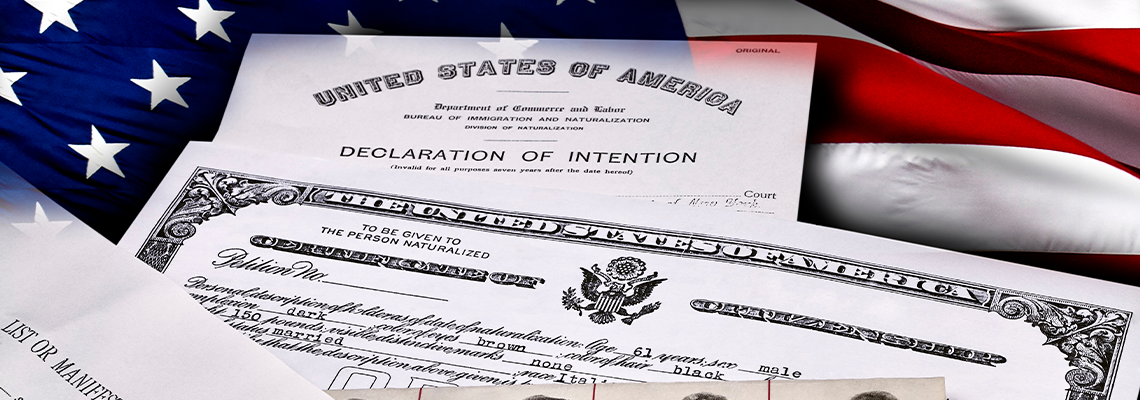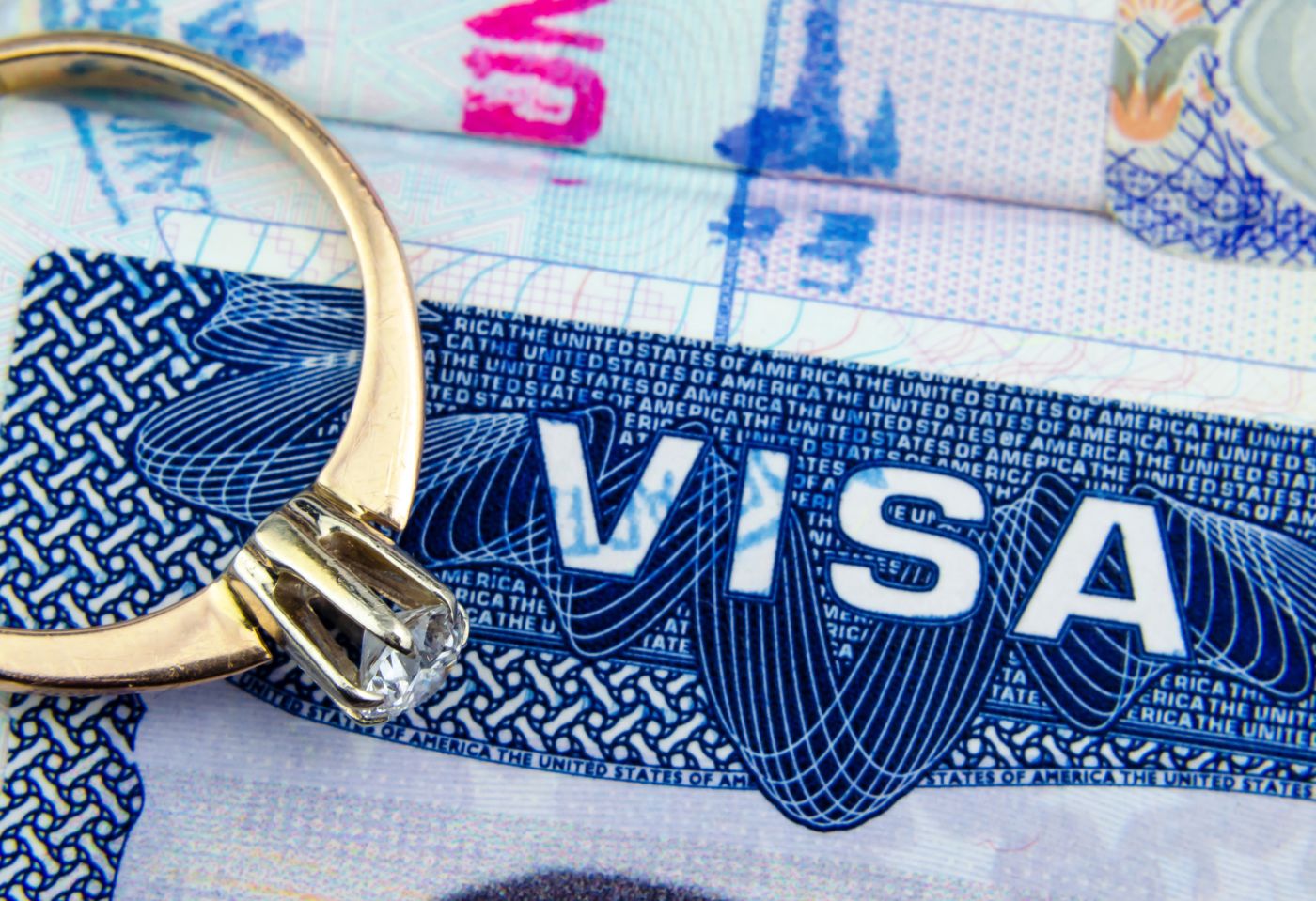
If you’ve recently been granted a green card, congratulations. This is a significant step toward permanent residency in the United States through immigration law. However, as you may already know, a green card does not automatically grant U.S. citizenship.
For many immigrants, citizenship represents the final goal in their journey to become fully integrated into American society. But when can you apply for citizenship after obtaining your green card?
At Herhusky Law Office, PLLC, we understand the intricacies of immigration law and how important it is for our clients to make informed decisions as they move forward with their citizenship applications.
The process of applying for U.S. citizenship involves several important steps and requirements, and it's essential to know when you're eligible to apply after receiving a green card.
This article will outline the necessary steps, requirements, and timing considerations involved in applying for U.S. citizenship after becoming a permanent resident, all under the context of North Carolina immigration law.
The Path to U.S. Citizenship After Getting a Green Card
Once you’ve received your green card, you’ve achieved permanent resident status in the United States. Permanent residents have the right to live and work in the U.S. indefinitely, but citizenship offers additional benefits, including the ability to vote, apply for certain government jobs, and travel with a U.S. passport.
To apply for citizenship, you need to go through a process called naturalization. The U.S. government has specific requirements for eligibility for naturalization, and it's important to understand when you can apply based on the timing and other factors.
General Requirements for Naturalization
Before we dive into the specific timelines, let’s first look at the general eligibility criteria for naturalization. You must meet the following seven basic requirements under U.S. immigration law:
Age requirement: You must be at least 18 years old to apply for naturalization.
Legal permanent resident status: You must have a green card (lawful permanent resident status) for at least five years. In certain circumstances, such as marriage to a U.S. citizen, this period may be reduced to three years.
Continuous residence: You must have lived in the United States as a permanent resident for a certain amount of time. For most people, this means you must have been physically present in the U.S. for at least half of the last five years (or three years if you are married to a U.S. citizen).
Good moral character: You must demonstrate good moral character during the required residency period. This includes not having certain criminal convictions or engaging in other behaviors that may disqualify you.
English language proficiency: Applicants must be able to speak, read, and write basic English unless they qualify for a waiver due to age or disability.
Knowledge of U.S. history and government: Applicants must pass a civics test, which includes questions about U.S. history, government, and the Constitution.
Attachment to the principles of the U.S. constitution: You must demonstrate that you are willing to support and defend the principles of the U.S. Constitution.
When Can You Apply for Citizenship After Receiving a Green Card?
Now that we’ve covered the general requirements, the next question is: when can you apply for citizenship after getting your green card?
Five Years After Receiving Your Green Card
For most permanent residents, the typical waiting period to apply for immigration law naturalization is five years from the date you receive your green card. During this period, you must maintain continuous residence in the United States and demonstrate your commitment to the country’s laws and ideals.
The five-year period starts from the date your green card was granted, not the date you entered the U.S. as a lawful permanent resident. However, there are important exceptions and nuances to consider, especially if you travel abroad or move frequently during this time.
Three Years for Spouses of U.S. Citizens
If you are married to a U.S. citizen, the residency requirement for applying for citizenship can be reduced to three years instead of the standard five years. However, to qualify for this reduced timeline, you must meet specific conditions:
You must be married to the U.S. citizen: This must be a valid, ongoing marriage. If you divorce before applying for naturalization, you will need to revert to the standard five-year requirement.
Your spouse must be a U.S. citizen: Your spouse must have been a U.S. citizen for the entire period of your marriage.
You must have lived in marital union: You and your U.S. citizen spouse must have lived together in the U.S. during the three-year period.
This exception is designed to help spouses of U.S. citizens, who are already deeply integrated into American life, apply for a immigration law citizenship sooner.
Continuous Residence vs. Physical Presence
Two important concepts come into play when determining your eligibility to apply for citizenship after receiving your green card: continuous residence and physical presence.
Continuous residence: In most cases, to qualify for naturalization, you must have lived in the U.S. continuously for at least five years (or three years if married to a U.S. citizen). "Continuous residence" means that you have maintained your primary home in the U.S. during that period and have not moved abroad for an extended period.
Physical presence: While continuous residence refers to where you live, physical presence means the actual number of days you’ve spent in the U.S. during the required time period. As a general rule, you need to have been physically present in the U.S. for at least half of the five-year (or three-year) period before you apply for citizenship.
What Happens if You Leave the U.S. for Long Periods?
One of the most common issues faced by permanent residents seeking immigration law naturalization is maintaining continuous residence when traveling abroad.
If you leave the U.S. for a trip that lasts more than six months, it can interrupt your continuous residence, making you ineligible to apply for naturalization. In some cases, a longer absence (over one year) will automatically break your continuous residence, even if you had planned to return.
If you need to travel abroad for an extended period, you may want to consult with an immigration law professional before leaving to discuss options such as applying for a re-entry permit. This permit can help demonstrate that you intend to return to the U.S. and maintain your status as a permanent resident.
What Happens If You Are in the Military?
If you are a member of the U.S. armed forces, there are certain exceptions and special provisions available to you when applying for citizenship.
You may be able to apply for citizenship earlier than five years, and in some cases, the physical presence requirement may be waived altogether. Additionally, spouses and children of military personnel may also qualify for expedited naturalization.
The rules governing military service and naturalization can be intricate, so it’s important to consult with a legal professional to understand how military service can affect your naturalization process.
Preparing for the Naturalization Application
Once you meet the eligibility requirements, it’s time to prepare for the naturalization application. This involves filling out Form N-400, the Application for Naturalization, and submitting it along with supporting documents such as your green card, passport-style photos, and any other relevant paperwork.
After submitting your application, you will be scheduled for a biometrics appointment, where your fingerprints will be taken for a background check.
You will then attend an interview with a U.S. Citizenship and Immigration Services (USCIS) immigration law officer, who will review your application and conduct an interview, including a civics test and English language proficiency test.
The First Steps
At Herhusky Law Office, PLLC, we are committed to guiding our clients through every step of the immigration process, from obtaining a green card to applying for U.S. citizenship. Our attorney serves Raleigh, North Carolina, and the surrounding areas of Durham, Greensboro, Fayetteville, Charlotte, Wilson, and Wilmington. Call today.


